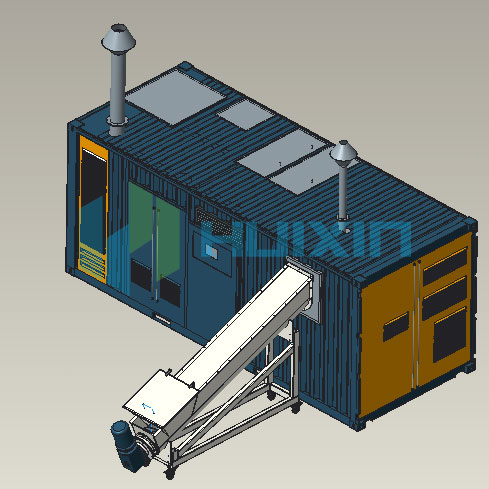Navigating Environmental Concerns: Understanding the Impacts of Operating an Industrial Waste Incinerator
2024-03-05
In the realm of waste management, industrial waste incinerators play a crucial role in processing and disposing of various types of waste materials. However, the operation of these facilities can also raise concerns about potential environmental impacts. In this blog, we'll explore the environmental impacts associated with operating an industrial waste incinerator, shedding light on the challenges and solutions for mitigating these impacts.
Introduction to Industrial Waste Incinerators
Industrial waste incinerators are specialized facilities designed to thermally treat and dispose of different types of waste materials generated by industrial, commercial, and institutional activities. These facilities utilize high temperatures to combust waste and reduce its volume, while also recovering energy from the process. While they offer an effective solution for waste management, the operation of industrial waste incinerators can have various environmental impacts.
Environmental Impacts of Operating an Industrial Waste Incinerator
1. Air Pollution: One of the primary concerns associated with industrial waste incinerators is air pollution. Combustion of waste materials releases pollutants such as particulate matter, sulfur dioxide, nitrogen oxides, and volatile organic compounds into the atmosphere. These pollutants can contribute to smog formation, acid rain, and respiratory health problems in nearby communities.
2. Greenhouse Gas Emissions: Industrial waste incinerators emit greenhouse gases such as carbon dioxide and methane, contributing to climate change and global warming. While waste-to-energy facilities recover energy from the combustion process, the net emissions of greenhouse gases must be carefully managed to minimize environmental impacts.
3. Ash Disposal and Contamination: The ash residues generated during the incineration process may contain heavy metals, dioxins, and other toxic substances. Improper disposal of ash can lead to soil and water contamination, posing risks to ecosystems and human health. Proper management of ash residues is essential to prevent environmental impacts and ensure compliance with regulatory requirements.
4. Noise and Visual Pollution: The operation of industrial waste incinerators can also generate noise and visual pollution, impacting the quality of life for nearby residents. Noise from equipment and machinery, as well as visual disturbances from smokestack emissions, can disrupt communities and affect property values in the vicinity of incinerator facilities.
Mitigation Strategies and Solutions
To address the environmental impacts associated with operating industrial waste incinerators, several mitigation strategies and solutions can be implemented:
- Advanced Pollution Control Technologies: Industrial waste incinerators can incorporate advanced air pollution control systems, such as electrostatic precipitators, scrubbers, and selective catalytic reduction units, to remove pollutants from emissions before they are released into the atmosphere.
- Ash Management and Treatment: Proper management and treatment of ash residues are essential to minimize environmental impacts. Ash may undergo stabilization, encapsulation, or recycling to reduce leaching of contaminants and ensure safe disposal.
- Community Engagement and Consultation: Engaging with local communities and stakeholders is crucial to addressing concerns and mitigating environmental impacts. Open communication, transparency, and collaboration can foster trust and support for incinerator projects.
- Regulatory Compliance and Monitoring: Industrial waste incinerators must comply with stringent environmental regulations and standards governing air emissions, ash disposal, and noise levels. Continuous monitoring and regular inspections are essential to ensure compliance and identify areas for improvement.
Conclusion
In conclusion, while industrial waste incinerators offer an effective solution for waste management, they can also pose environmental challenges that must be addressed. By implementing advanced pollution control technologies, proper ash management practices, and engaging with communities and stakeholders, industrial waste incinerators can minimize their environmental impacts and operate in a sustainable manner. Continued innovation, regulation, and collaboration are essential to ensuring that industrial waste incinerators contribute to a cleaner, healthier environment for present and future generations.



